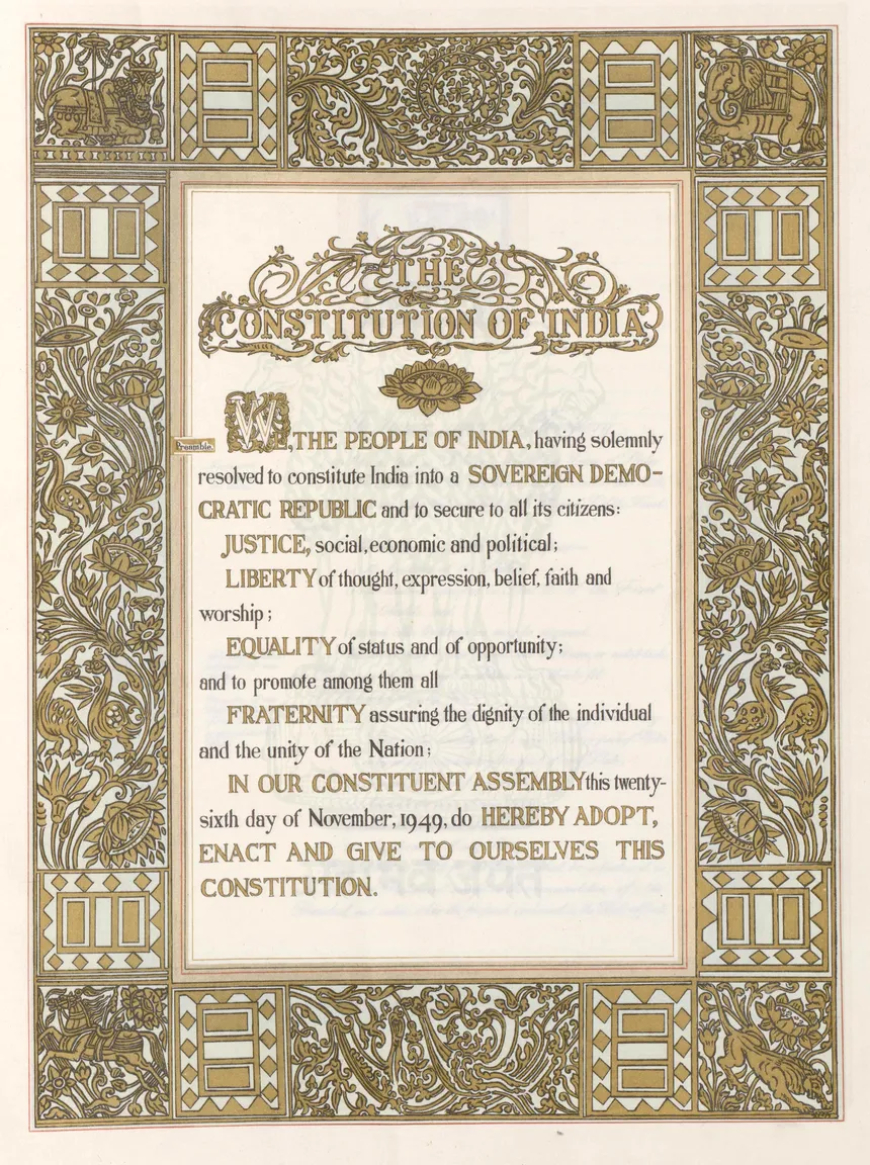Libertarianism and the Indian Constitution: Are They Compatible?
Explore the compatibility between libertarian principles and the Indian Constitution, focusing on freedom of speech, economic rights, and decentralization. Discover how these ideals could reshape governance in India.


Libertarianism, with its emphasis on individual freedom, limited government intervention, and free markets, presents a distinct ideology that many consider radical when compared to more traditional governance models. In the Indian context, where the Constitution is revered as the cornerstone of democracy and governance, the question arises: Are libertarian principles compatible with the Indian Constitution?
This article delves into how libertarian values align or clash with the constitutional framework of India, particularly in areas such as freedom of speech, economic rights, and decentralization.
Freedom of Speech and Expression

One of the most notable intersections between libertarianism and the Indian Constitution is in the realm of freedom of speech. Article 19(1)(a) of the Constitution guarantees the right to freedom of speech and expression to every citizen, which is a fundamental tenet of libertarian thought. Libertarians advocate for minimal restrictions on what individuals can express, barring any government-imposed censorship.
However, the Indian Constitution introduces reasonable restrictions under Article 19(2) to protect public order, morality, and national security. These restrictions, while considered necessary in the Indian context, often come under criticism from libertarians who argue that such limitations on free speech stifle individual autonomy and creativity. For example, India has witnessed numerous instances where books, movies, or speeches have been banned due to "offensive" content, sparking debate over where to draw the line between free expression and state control.
Libertarians would argue for a more robust interpretation of free speech, advocating for minimal government interference and encouraging the market of ideas to regulate itself.
Economic Rights: A Path for Free Markets?

Libertarianism champions economic freedom, where individuals are free to engage in voluntary transactions without excessive state control. This principle aligns with Article 19(1)(g) of the Indian Constitution, which allows citizens the right to practice any profession, trade, or business. However, the caveat of "reasonable restrictions" again emerges, as the government often imposes regulations, taxes, and controls that libertarians view as stifling entrepreneurship and innovation.
In India, sectors like agriculture and telecommunications have historically seen significant government regulation, leading to inefficiencies. The recent farm laws, for instance, which sought to deregulate the agricultural sector and promote free-market principles, sparked massive protests due to concerns about corporate exploitation. This highlights the delicate balance that must be struck between individual economic freedom and the need for government oversight to protect vulnerable sections of society.
Libertarians would advocate for a more deregulated economy, encouraging competition and reducing the state's role in determining market outcomes. They argue that such a system would lead to more innovation, job creation, and a healthier economy in the long run. However, this vision often clashes with India's social welfare responsibilities, where state intervention is seen as necessary to uplift economically weaker sections.
Decentralization: Empowering Local Governance
A core libertarian belief is that the government closest to the people governs best. Decentralization, or the devolution of power from the central government to local bodies, is seen as a way to increase accountability and ensure that governance aligns more closely with local needs. This principle finds resonance in the Indian Constitution's provisions for Panchayati Raj institutions, introduced through the 73rd and 74th amendments, which aim to empower local self-government in rural and urban areas.
However, despite these constitutional provisions, the central and state governments in India continue to wield significant power, often encroaching on the autonomy of local bodies. Bureaucratic control, limited financial resources, and political interference have hampered the effective functioning of decentralized governance.
Libertarians argue that true decentralization would allow local communities to make decisions that directly affect them, whether in areas of education, infrastructure, or law enforcement. This would lead to a more responsive and efficient governance model, reducing the bureaucratic delays and corruption often seen in a heavily centralized system.
Challenges in Implementation
While the principles of libertarianism may align with certain constitutional ideals, there are significant challenges in applying them to the Indian context. The Indian state has historically played a large role in the economy, with socialist-inspired policies dominating the early decades post-independence. The transition from a state-controlled economy to a more libertarian, free-market model would require significant legal and structural changes.
Moreover, the social and economic disparities in India complicate the full implementation of libertarian policies. Libertarianism's focus on individual responsibility and minimal state welfare may not sit well with a country where large sections of the population rely on government schemes for basic necessities like food, education, and healthcare.
The Way Forward: Finding a Balance
In conclusion, libertarianism and the Indian Constitution share common ground in advocating for individual freedoms, but the practical application of libertarian principles in India requires a careful balance. While libertarianism pushes for fewer restrictions and more personal responsibility, the Indian context necessitates certain protections and interventions to ensure social equity and stability.
The challenge lies in finding a middle path where individual freedoms are upheld, economic activities are deregulated to foster growth, and decentralization is truly implemented to empower local governance—all while ensuring that the state continues to play a role in protecting the vulnerable and maintaining social harmony.
As India continues to evolve as a democracy, the dialogue between libertarian ideals and constitutional mandates will remain crucial in shaping the future of governance.
What's Your Reaction?



















































